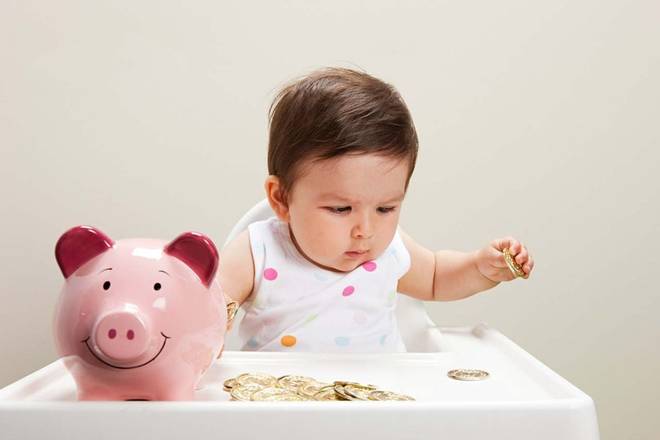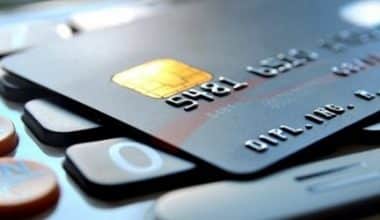In choosing the best savings for your child, as a parent or guardian, you should understand what a savings account is and how to open one for your child, as well as be aware of financial institutions for children, such as the Bank of America Kids Savings Account, Chase Savings Account for Baby, PNC Kids Savings Account, and Alliant Kids Savings Account. It’s up to parents to choose the best savings for their children as primary caregivers. This writing will help you teach your child who could become a leader someday.
If you are a mother, father, or soon-to-be parent. It is paramount that you understand that, owing to the lack of financial knowledge and education, 60% of adults in our society end up in debt and bankruptcy, not because they don’t have a paid job, but because they mismanage their money and spend on things they shouldn’t.
Best Saving Account for Baby
In setting up an account for a baby, you should consider opening either a custodial account or a savings account for the child. Most banks offer both alternatives.
A custodial account is one that parents or guardians manage for their children or ward. Your state’s version of the Uniform Transfers to Minors Act (UTMA) governs the creation of custodial accounts. Whereas a savings account is tailor-made for children from 0 to 18 years of age.
In this sphere, the parents and their baby/child are partners, i.e., they have joint ownership. This savings account for children also comes with applications through which parents can oversee/observe their kids and birthday tips.
When a kid reaches the age of majority, he or she can either take over the account or continue to share ownership. This varies depending on the bank chosen.
Who Owns a Child’s Savings Account?
For every baby or young child under the age of 10, parents usually manage the account on their behalf. On the other hand, the child may be able to use the account as time goes on or as he or she gets older and learns more about the bank’s contract terms. Moreso, parents can open a savings account for their baby and be the only signatories to the account, or they can be joint partners/account holders.
Now, coming back to our question after developing the above fact. (Who owns a child’s savings account?)
Any name issued as the account’s holder is the account’s owner. If the account is in your baby’s name, your baby is the account’s owner by default. Furthermore, if the parents are joint account holders with their baby, then both the parents and the baby are joint account owners.
Whereas, if a parent only manages the account on the baby’s behalf, the parent is just a signatory to the account and not an owner.
When a child attains the age of 18, he/she can take over the account and modify or replace the signatories.
Can You Withdraw From a Child’s Savings Account?
Yes! As the person responsible for the baby’s account, you can withdraw from your child’s savings account; however, if there is any limit to withdrawal set initially at the account opening, then you will have to adhere to it. Moreso, the money should be used for the baby’s/child’s benefit.
Note: A baby savings account should be left alone regarding withdrawals, especially considering it’s expected to grow into a baby nest fund.
Key Importance of Opening an Account for a Baby
#1. Teaches the Child Money and Its Value
When you open a savings account for your child, you are laying the groundwork through practical finance education rather than theories. Whatever you learn as a child finds a way to mold you. Here, you let the child know what money is all about and its value in the world.
When I was a child I was taught never to take things that didn’t belong to me no matter how small or insignificant, and this includes pencils except the owner freely offers it to me. Guess what? I’ve still got it skewed in my head.
Businessyield
#2. Teach Your Child the Power of Saving Money
Instill the habit or practice of saving their own money in them, whether through an allowance, chore pay, or otherwise. There is this saying, “Make hay while the sun shines.”
Most children who grow into adults find it difficult to save as adults. Why? Because it isn’t part of them. Inculcate the habit of saving in your child, and he/she will be grateful to you for life. Money savings habit is essential to opening a savings account for your baby.
#3. To Help Your Child With His or Her Banking Education
In the world at large, it is pertinent that one be acquainted with the banking system. Opening an account for your baby lets your child learn how to deposit. For example, your child can learn how to handle real-life banking chats at a physical bank, use internet banking, and deposit checks.
#4. It Helps the Parents to Save Up for a Specific Financial Purpose
Come to think of it; college fees are sometimes a major challenge to most parents. This gives them a unique way of saving up for that. The sooner you open a savings account for your child, the better.
#5. Opening a Savings Account For Your Baby Will Also Help You Teach Your Child How to Spend Responsibly
Most adults find themselves spending unnecessarily or on irrelevant things. Of course, they work and are well paid, yet they can’t give a good record of their income, and this may lead to indebtedness which is not a good one. As a signatory to your baby’s account, you can manage and control such an account, thereby creating the platform for you to teach him/her how to spend responsibly or to prioritize his/her spending.
#6. Showing Them That Money Is Useful
The main purpose of setting up a savings account for your baby is to show him/her how useful money is in our society. Money is of great essence in our world today. Without money, certain life necessities wouldn’t be met.
Open a savings account for your child today; it’s a win-win scenario, after all.
What Is the Best Savings Account for Baby?
You have two options for your baby’s account. A savings account or a custodial account, and the difference is considerable. If you opt for a savings account, your baby will have access to funds and share ownership of the account with you. On the other hand, a custodial account is seen as a gift your child wholly owns and, therefore, can’t be harnessed until they reach the age of 18.
This account’s use has tax implications, so it is advised to opt for the baby’s savings account except in cases where there is a specific need for the other.
Now, in choosing the best savings account for your baby, there are a few things to consider:
- Age: This is necessary since not all child savings accounts accommodate kids under 12. Bearing in mind the account’s age restrictions.
- Interest: Check out the interest rate to know the most favorable one.
- Monthly payment: Keep an eye out for a kid’s savings account with monthly deposits that you’re comfortable with.
According to the research carried out by SABRINA KARL and updated on the 6th of June 2023. The best child’s saving accounts for 2023 are:
#1. Capital one’s kids saving account
This kid’s savings account has a highly-rated mobile app with parental controls, No fees or minimum balance requirements; interest is also paid on any balance. However, The Capital One Teen Checking Account is somewhat ambiguously called, as it is open to any child.
#2. Northpointe bank’s kids’ saving account
Northpointe does not have any membership qualifying requirements as a bank on balances over $10,000; you’ll get a far greater rate than the average. There are no charges or minimum balances.
#3. Spectrum credit union’s MySavings youth account
A savings account pays the highest APY accessible nationwide; it’s possible to keep your account until you’re 21. Additionally, an ATM card can be requested by account holders above the age of 13.
When to Start Saving for a Baby?
As soon as they are born. Other aspects, such as how to use a credit card properly and the need to save up for large expenditures, will emerge over time. The longer the money has to grow and compound, the better; thus, it’s ideal to open the account as soon as feasible.
What is an Investment Account?
In its broadest definition, an investment account is any of a wide range of financial instruments that can be used to buy, sell, or hold assets. Investment accounts are frequently used to transmit funds to the receiving brokerage or other receiving firm in trades involving securities and deposit services.
How to Open a Savings Account for a Child
To you to open a Savings Account for a child, the following are required:
- An adult, probably the baby’s parents or guardian.
- A US identification card could be the parent or guardian’s driving license or passport.
- Your current account number is crucial since banks frequently link children’s accounts to their parents’ accounts.
- The baby’s US identification card could be either the baby’s birth certificate or his/her security card.
- A first-time deposit.
- Baby’s full name.
- Current home address.
Select any of the baby’s bank accounts, such as Chase, Pnc kids account, and others, provided below to get started!!!
Bank of America Kids Savings Account
Bank of America is Predominantly the world’s second-best bank, with 4,600 branches and well-known banking, & financial cooperation. It is a bank apt for investment. It also provides a wide range of financial services, including lending.
Bank of America Savings account provides maximum attention to children and young people under 18. There is also something called Advantage SafeBalance Banking which provides no excess or monthly charges/fees.
Only a local location/branch of Bank of America may open a Bank of America kid’s Savings Account. This is because the bank won’t create an account for a child unless one of their parents is physically present at the location; it is not something you can do over the phone or online.
To create a savings account for your child in the bank of America, the following are indispensable:
- The first deposit of $25.
- Residential address in the United States of America.
- Name.
- Date of birth/certificate of birth.
- Government-issued documents of the parent or guardian who is an adult above 18.
- Child’s security number/card.
The bank of America like other kids’ savings accounts has advantages which include no charge for maintenance on a monthly basis, auto transfers, fairly low initial deposit. Incredibly, it switches instantaneously to a Bank of America Advantage savings account once the child becomes of age (18).
Pnc Kids Account
The PNC Kids Account is a savings account that helps educate and train children on financial fundamentals/basis. PNC savings accounts are suitable for kids under thirteen who are learning the basic elements of spending, donating, and saving. This is something Sesame Street teaches them.
The Pnc kids Account comes with a banking card and no monthly service costs as long as the account holder is a kid or minor (under 18) and a $25 initial deposit.
As a parent or guardian, if your so aim or purpose of opening a child’s savings account for your child/ward is to teach him/her the ethics and principles of money spending, savings, and giving. Then Pnc Kids Account is for you but if you are interested in the annual percentage yield (APY) then opt for another child’s savings account with a higher APY. Pnc kid’s savings account APY is as low as 0.01%.
It is expedient that you know and have the following in opening a Pnc Kids Account for your child:
- Parents/guardians should be at least 18 years of age and above.
- An initial deposit of $25 is required.
- The number assigned by the Social Security System to you and your baby.
- The number on a government-issued picture ID.
- Name in full.
- Your home address.
- Date of birth and,
- Your passport.
Chase Savings Account for a Baby
Chase saving account for a baby is a savings account for children that gives them access to money by allowing them to use a debit card while still providing their parents with the control power and chance to teach and educate them financially.
This account belongs to the parent/guardian, who must also have an online profile. Unlike most baby savings accounts, your child will receive a debit card to withdraw from their Chase savings account. This account is best for one who wants to train and control their child on spending and saving money.
You can set spending boundaries for your child in terms of where and how much he or she can spend.
Chase savings accounts for babies also give parents the luxury of setting up periodical allowances and assigning chores or duties to their children for them to earn.
On the contrary, technical problems and other factors may cause alert delivery to be delayed. You may be charged for data and texts, and notably, when you check your balance, it may not display all transactions, especially recent debit card transactions or checks you’ve issued.
Alliant Kids Savings Account
Alliant is a global digital credit union and one of the most well-known grandmasters in financial organizations.
The Alliant Credit Union Child’s Savings Account is a bank account provided by Alliant Credit Union, a Chicago-based financial institution that was founded in 1935. In 50 states, including Washington DC, Alliant Credit Union offers a Kids Savings Account.
The Alliant Credit Union Kids Savings Account pays up to 0.55 percent annual percentage (APY) interest, which is more than the Chase saving account and the national average. It doesn’t charge for services monthly nor charges for ATM, and most importantly, there is no least or smallest amount demanded in opening an Alliant Kids Savings Account.
Necessary pieces of information on Alliant kids account opening:
- The child must be under the age of 12.
- The parent/adult responsible for the child must be an Alliant Credit Union member.
- A government-issued identity document, such as a driver’s license or passport, has been certified.
- Your baby’s birth certificate.
- A U. S. citizen or permanent resident in the U.S.
- A personal taxpayer identification number (ITIN) or a Social Security number.
To be a member of the Alliant Credit Union, go to Alliant’s website for more information.
What Is the Best Baby Investment Account?
Establishing a UGMA custodial account is one of the best methods to give a child access to investment funds while offering advantageous tax treatment.
You are free to deposit as much money as you want into your UGMA account. Because children have such a long investing horizon, a custodial account allows you to construct a much greater nest egg. This makes it a good investment account for a child?
Last but Not the Least
In the 11th Annual Parents, Kids, and Money Survey from T. Rowe Price Nearly half of parents claimed they didn’t make out time to talk to their children about money and finances, according to the survey. Half of the children questioned expressed a desire that their parents taught them more about money. However, if you don’t teach your child about money, they will pick it up elsewhere. If you want to have a substantial impact on your children’s attitudes, ideas, and beliefs about money. Give them the luxury of money management early in life. Assist your infant or child in comprehending the regulations.
Remember to open/create a Savings Account for your child. It is pertinent you are aware of financial institutions for children, such as the Bank of America Kids Savings Account, Chase Savings Account for Baby, Pnc Kids Account, and Alliant Kids Savings Account.
Best Savings Account for Baby FAQs
Who owns a baby's savings account?
Any name issued as the account’s holder is the owner of the account. If the account is in your baby’s name automatically your baby is the owner of the account. Furthermore, if the parents are joint account holders with their baby, then both the parents and the baby are joint account owners.
Can you withdraw from a child's savings account?
Yes!, as the person responsible for the baby’s account, you can withdraw from your child’s savings account. However, if there is any limit to withdrawal set initially at the account opening, then you will have to adhere to it. Moreso, the money should be used for the baby’s/child’s benefit.
What is a Chase Savings Account for Baby?
Chase Savings Account for Baby is a savings account for children that gives them access to money by allowing them to use a debit card while still providing their parents the power and chance to teach and educate them financially.
What are the advantages of having an Alliant Kids Savings Account?
The Alliant Credit Union Kids Savings Account pays up to 0.55 percent annual percentage (APY) interest, which is more than the Chase saving account and the national average, doesn’t charge for services monthly, no ATM charges, and most importantly there is no least or smallest amount demanded in opening Alliant kids saving account.
Which baby's Savings Acoount issue an ATM?
The Pnc kids account comes with a banking card and no monthly service costs as long as the account holder is a kid or minor.
Related Articles
- FINANCIAL LITERACY FOR KIDS: BASIC LESSONS AND ACTIVITIES FOR ALL GRADES
- Best Ways To Invest Money: Top 7 + Options In 2023 & Best Practices
- Best Banks In Georgia: Top 15 Best Banks
- A Quick Guide to Life Insurance For New Parents
- JOBS FOR KIDS UNDER 13
- SAVINGS BONDS FOR KIDS: How to Invest in Savings Bonds for Kids






